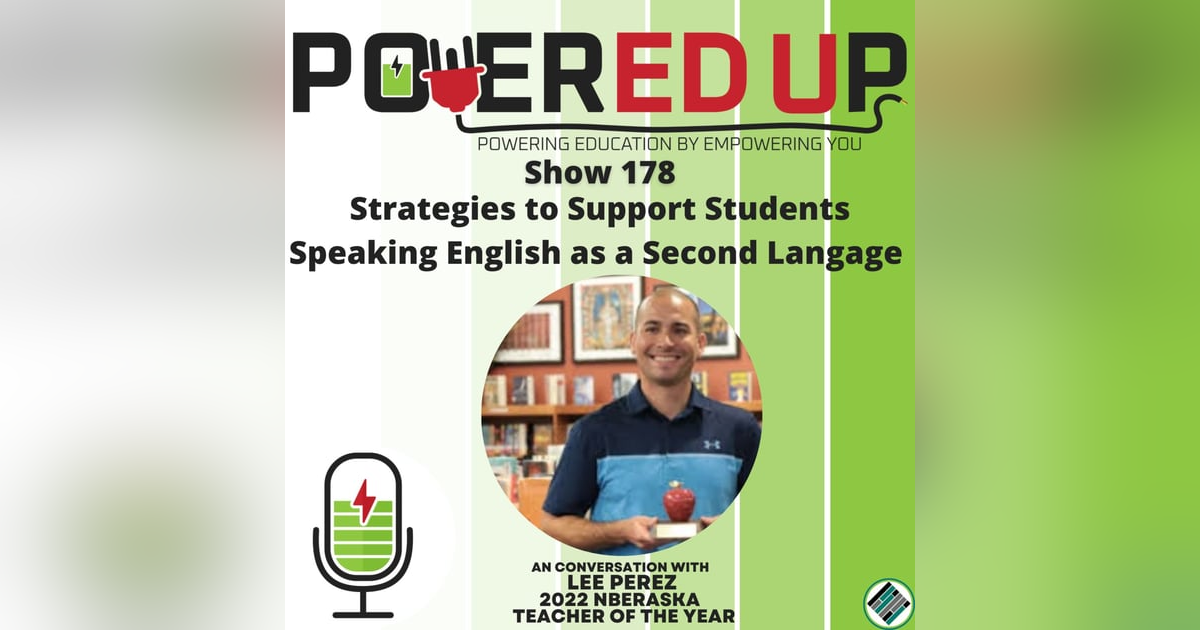178: Strategies to Support Students Speaking English as a Second Language

In this episode of the Powered Up Podcast, Lee Perez returns to discuss effective strategies for supporting English Language Learners (ELLs) in the classroom. He emphasizes the importance of understanding the differences between social and academic language, the need for patience, and the value of viewing students from an asset perspective. Lee shares his experiences and insights on instructional strategies, the silent phase of language acquisition, and creating a welcoming environment for ESL students. The conversation highlights the challenges and rewards of teaching multilingual learners and the necessity of culturally responsive teaching practices. In this conversation, Lee Perez discusses the importance of culturally responsive teaching and the effective use of students' native languages in the classroom. He emphasizes the need to lower the effective filter for English Language Learners (ELLs) during their silent phase and the benefits of dual language strategies. The discussion also covers modifying expectations for ELLs in mainstream classrooms and the significance of making learning engaging and relevant to combat chronic absenteeism. Lee shares insights on the challenges of writing for ELLs and the necessity of sheltered curriculum to support their learning.
Takeaways
- Teachers will have ESL students regardless of certification.
- Language acquisition takes time; be patient with students.
- Social language is different from academic language.
- Look at students from an asset perspective, not a deficit perspective.
- Multilingualism is a superpower; students can learn anything.
- Challenge students when they are ready; don't hold back.
- Language transfer can be utilized in instruction.
- Creating a low-stress environment helps language acquisition.
- The silent phase is a natural part of language learning.
- Culturally responsive teaching fosters connection and understanding. Culturally responsive teaching helps lower the effective filter for ELLs.
- Students are eager to learn English; it just takes time.
- The silent phase is crucial in language acquisition.
- Dual language strategies enhance cognitive rigor and language skills.
- Writing is often the hardest skill for ELLs to master.
- Engaging students with their interests can improve learning outcomes.
- Chronic absenteeism is a significant issue in education today.
- Sheltered curriculum is essential for ELL success.
- Patience and understanding are key when teaching ELLs.
- Language development is a process that requires time and support.







